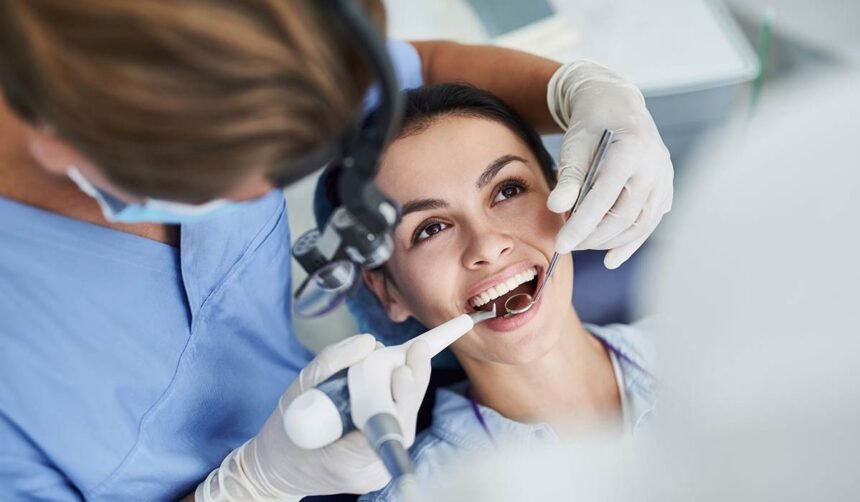A beautiful smile doesn’t have an expiration date. As we age, our oral health needs change, and the routines that worked in our younger years may not be enough to protect our teeth and gums later in life. Oral care for seniors isn’t just about keeping teeth clean—it’s also about preventing disease, preserving comfort, and supporting overall health.
According to research, oral health is directly linked to heart health, diabetes management, and even cognitive wellness. That makes prioritizing dental care an essential part of healthy aging. Fortunately, a few simple habits can help maintain strong teeth, healthy gums, and confident smiles.
1. Prioritize Daily Brushing and Flossing
Seniors should brush at least twice a day using a soft-bristled toothbrush and fluoride toothpaste. Soft bristles are gentle on aging gums and enamel while still removing plaque effectively. For those with decreased hand strength or arthritis, using an electric toothbrush can make brushing easier and more efficient.
Flossing remains just as important as it was when you were younger. It removes plaque and food particles from places a toothbrush cannot reach. If flossing is difficult, floss holders or water flossers can be great alternatives.
2. Keep Dry Mouth Under Control
Dry mouth is a common issue among older adults, often caused by medications or certain health conditions. Without adequate saliva, bacteria can thrive, leading to higher risks of cavities, gum disease, and bad breath.
To combat dry mouth:
- Sip water frequently during the day.
- Use sugar-free lozenges or gum to stimulate saliva.
- Install a humidifier in your sleeping area.
- Avoid alcohol-based mouthwashes.
If dryness persists, ask a dentist or doctor about saliva substitutes or prescription oral moisturizers.
3. Protect Your Gums
Gum disease is more prevalent in seniors and can lead to sore gums, infections, and even tooth loss if untreated. The good news? It’s preventable.
Watch for signs such as:
- Bleeding gums while brushing
- Persistent bad breath
- Receding gum lines
- Sensitivity when chewing or brushing
Regular dental checkups are key to catching problems early. Professional cleanings remove hardened plaque, known as tartar, that brushing alone cannot eliminate.
4. Maintain Routine Dental Visits
Many seniors mistakenly believe that if they no longer have all their natural teeth, dental checkups are unnecessary—but that couldn’t be further from the truth. Whether you have natural teeth, dentures, partials, or implants, routine examinations help detect issues early.
Dentists can:
- Check for gum disease
- Screen for oral cancer
- Inspect and adjust dentures
- Monitor overall oral health
Aim for at least two visits per year, or more if recommended.
5. Consider Tooth Replacement Options if Necessary
Tooth loss can make it difficult to eat certain foods, speak clearly, and feel confident smiling. Today, seniors have more replacement options than ever, ranging from removable dentures to dental implants. Some individuals may choose solutions such as permanent dentures in Scott, LA, which offer improved comfort and stability compared to traditional options.
If you’re concerned about missing teeth or loose dentures, talk with a dental professional about the best restoration solution for your needs.
6. Maintain a Mouth-Friendly Diet
What we eat has a big impact on oral health. Teeth and gums benefit from a balanced diet rich in:
- Calcium (milk, yogurt, leafy greens)
- Vitamin D (fish, eggs, fortified foods)
- Antioxidants (berries, nuts, vegetables)
Limit sugary snacks and acidic beverages, which can erode enamel and contribute to decay. Drinking water after meals is a simple way to rinse away food particles and keep your mouth clean.
7. Don’t Ignore Oral Discomfort
Pain is not a normal part of aging. If you notice discomfort when chewing, sensitivity to hot or cold, or changes in your gums or bite alignment, it’s important to seek dental advice promptly. Early treatment often prevents more serious complications.
A Healthy Smile Supports a Healthy Life
Taking care of oral health helps seniors maintain their independence, comfort, and overall well-being. A confident smile encourages social interaction and boosts self-esteem—two elements proven to support mental health as we age.
With regular care, smart habits, and professional support, it’s absolutely possible to enjoy a healthy smile for decades to come. Remember, it’s never too late to start taking better care of your oral health.
Ready to prioritize your smile?
Make oral care part of your daily wellness routine. Your future self will thank you—with a bright and confident grin.







